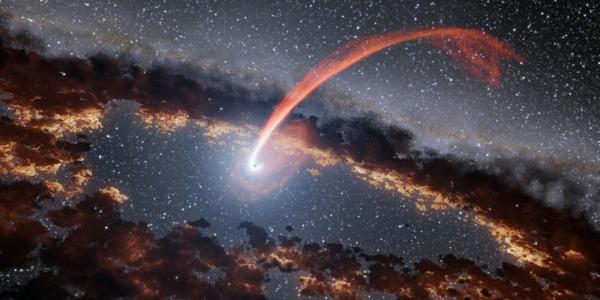Space Sciences/Astrophysics Seminar with John Mehlhaff on Electromagnetic Fireworks Triggered by a Black Hole Feeding on its Magnetized Plasma Corona
Accreting black holes comprise the central engines for some of the most extraordinary high-energy phenomena in the Universe, including extragalactic radio jets, X-ray binaries, and gamma-ray bursts. Yet, how these objects manipulate their plasma environments to produce the light we observe remains in large part a mystery. Part of the problem is that complicated interactions between different parts of an accreting black hole system are responsible for accelerating the radiating particles. One important – and still poorly understood – interaction is between the black hole itself and its highly magnetized corona (i.e., the dilute plasma atmosphere sandwiching the accretion disk). In this talk, I present our recent efforts to better understand how a black hole feeds on a strongly magnetized accretion disk corona. Our approach involves constructing numerical models based on first-principles plasma simulations. Such simulations are well-adapted to this problem because they self-consistently track the explosive particle acceleration and radiative emission resulting from the black hole corona coupling. We find that the magnetic scale height of the corona strongly impacts the energy released as radiation and dictates whether a large-scale relativistic jet is launched. These results may shed light on X-ray binary state transitions as well as a peculiar changing-look event observed from the active galactic nucleus 1ES 1927+654.
Sponsored by the McDonnell Center for the Space Sciences.

